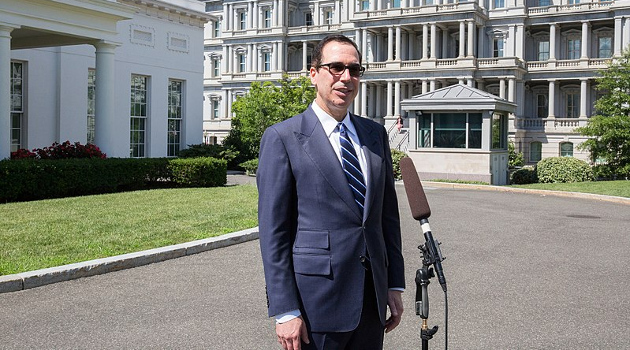My colleague Dan Mitchell recently provided any overview of the tax fight between the U.S. and the E.U. over taxing digital businesses. He aptly summarized: “all you really need to understand is that European politicians view American tech companies as a potential source of loot.”
The quality of the U.S. response has been mixed. On the one hand, members of the Trump administration are starting to take a harder line against E.U. nations that have or are planning to implement digital taxes on U.S. tech giants. In response to a threat to impose steep tariffs on their exports, France agreed to delay the tax through the end of the year while the countries negotiate. Treasury Secretary Mnuchin has also threatened Italy and the U.K. with tariffs as they move forward with their own taxes.
Nevertheless, many European nations are planning digital services taxes, as Elke Asen of the Tax Foundation explains:
However, despite these ongoing multilateral negotiations, several countries have decided to move ahead with unilateral measures to tax the digital economy. About half of all European OECD countries have either announced, proposed, or implemented a digital services tax (DST), which is a tax on selected gross revenue streams of large digital companies.
…Although these DSTs are generally considered to be interim measures until an agreement is reached at the OECD level, it is unclear whether all of them will be repealed at that point.
Asen is referring to the multilateral negotiations underway at the OECD that grew out of the BEPS project. Nations are using the threat of their own taxes, along with blacklists, to force the OECD to do its bidding. CF&P’s Brian Garst has argued this undermines the organization’s claim to be consensus-based.
And as I’ve previously written, this effort is a threat to tax competition. One of the proposals is a global minimum tax, which amounts to tax harmonization, which we’ve long warned will be used to raise global tax burdens.
Unfortunately, the administration has mostly supported the push for a global minimum tax, likely calculating that a multilateral agreement is preferable to a raft of countries imposing their own digital taxes. Under pressure from businesses, they briefly pushed for an optional system that would allow firms to choose between the current or new rules, but quickly agreed to drop that demand. Needless to say, since the objective of the high-tax nations is not just to change the global system but to ensure higher tax burdens, optional is not an option to them.
So the OECD soldiers on, working toward its stated goal to have an agreement by the end of the year. Unless the administration begins to more seriously fight back, there’s a very real danger that the OECD will finally get what it wants: an end to global competition over taxes that will allow for much higher burdens on economic activity. And we’ll all be poorer for it.
———
Image credit: The White House | Public Domain.

